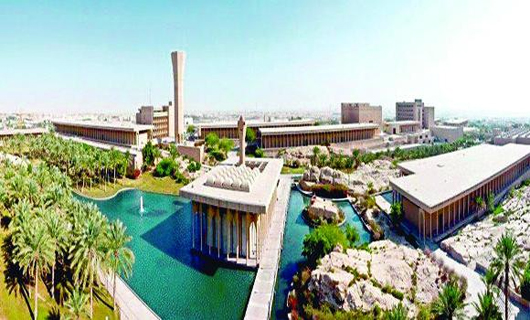Dhahran, Jun 14: King Fahd University of Petroleum and Minerals (KFUPM) has been ranked first among the region’s Top 100 universities, according to QS World University Rankings 2015.

According to the report, the American University of Beirut (Lebanon), King Saud University (Riyadh) and King Abdul Aziz University (Jeddah) followed respectively.
Despite its name, KFUPM offers courses in a wide array of subjects, covering traditional disciplines as well as fields of engineering, science and business.
In the QS World University Rankings for 2015, the university is ranked among the world’s Top 200 institutions for computer science, mathematics, statistics and operational research, chemical engineering, civil and structural engineering, electrical, electronic and mechanical engineering.
It also ranks in the global Top 400 for chemistry.
The rankings compare the Top 800 universities globally across four broad areas of interest for prospective students, including research, teaching, employability and international outlook.
Four key areas are assessed using six indicators, each of which is given a different percentage weighting.
Four of the indicators are based on hard data, including student-to-faculty ratio (20 percent), citations per faculty (20 percent), international faculty ratio (5 percent), and international student ratio (5 percent).
The remaining two indicators are based on major global surveys, one of which is the reputation of academics (40 percent) and another regarding the reputation of employers (10 percent).
“With one of the fastest-growing higher education systems in the Middle East, Saudi Arabia offers a number of world-class institutions,” said the report.
“Eight Saudi universities were ranked in the QS World University Rankings 2014/15, and the nation claims 12 of the Top 100 universities in the Arab region, in the QS University Rankings: Arab Region 2015.”
The report pointed out that facilities at the leading universities in Saudi Arabia are second-to-none, thanks to the nation’s ongoing and significant investment in higher education.
Saudi Arabia’s rapid development over the last 50 years has had a strong impact on trade, business, tourism, education, technology, transport, architecture and culture, particularly within the key cities, said the report.








Comments
Add new comment